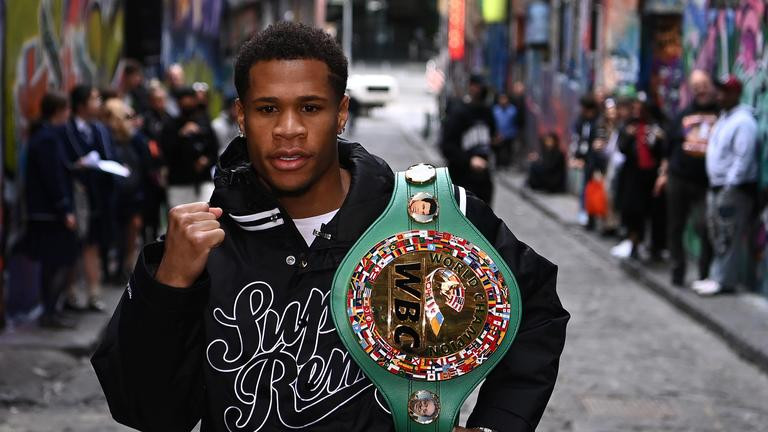Turki Alalshikh has drawn a bold new line in Riyadh’s desert sand: brawlers only, runners need not apply. In a pointed social-media post, the Saudi powerbroker vowed to steer future Saudi cards away from “Tom-and-Jerry” chess matches and toward toe-to-toe firefights. The most immediate casualty of that policy could be Devin Haney, whose safety-first masterpiece against Sandor Ramírez on May 2 left both spectators and Turki cold.
For Haney the implications are sserious. Riyadh Season money has bankrolled tune-ups that paid like title fights, a luxury unlikely to continue if Turki follows through. And reinvention won’t come easy: Haney’s sleek, in-and-out style has never hinged on mid-ring slugging, and the extra seven pounds at welterweight have already dulled what pop he once flashed at 135.
Watch Haney vs. Ramirez highlights: Watch
Bill Haney now faces a dilemma. Either rebuild his son into a crowd-pleaser risking unfamiliar exchanges against punchers like Mario Barrios or accept a pay-grade downgrade and chase belts the old-fashioned way. The short list of viable foes reads like a promoter’s headache: Rolly Romero, whose own comeback arc makes the matchup plausible; Manny Pacquiao, a payday mirage unless the Philippine icon upsets Mario Barrios next month; or UK draw Connor Benn, a style clash with no guarantee of Saudi backing.
Turki’s stance ripples beyond Haney. Shakur Stevenson, another master of negative space, now finds himself under identical scrutiny, while promoters from Matchroom to Top Rank must rethink which blueprints travel to the Kingdom’s lucrative stage. Saudi money once appeared limitless; now it has terms and conditions, chief among them violence on demand.
Image Credit: Getty Images
